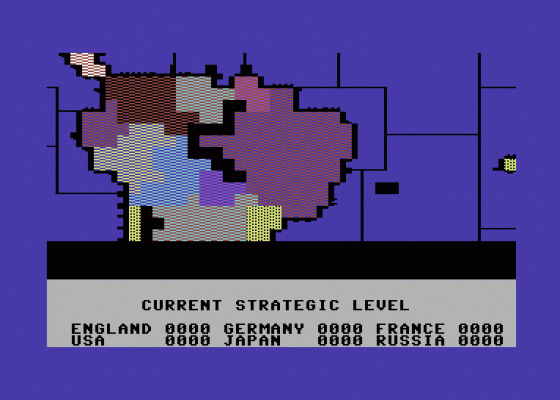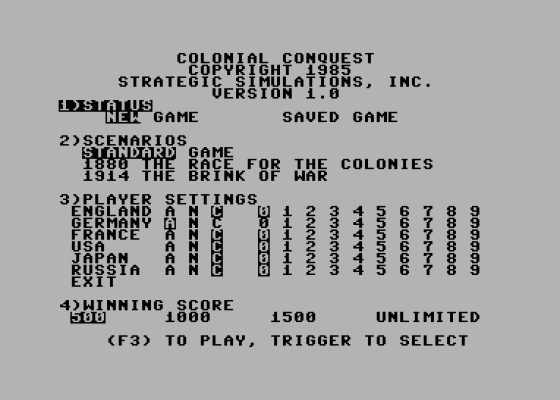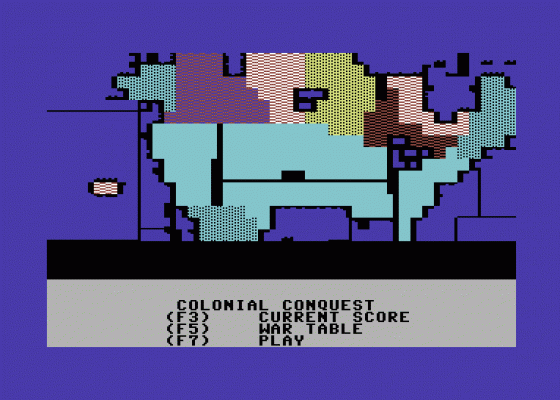
Computer Gamer
 1st July 1987
1st July 1987
Categories: Review: Software
Publisher: Unknown
Machine: Commodore 64
Published in Computer Gamer #27
Tony Heath finds a way of satisfying his craving for power.
Colonial Conquest
Are you a power-mad megalomaniac? Do you find it difficult to find a game that quenches your thirst for power? Then why not try Colonial Conquest. In the game you compete with five other human or computer opponents for global domination! You must lie, cheat, backstab, bribe and battle your way to the top.
The game is set in the turbulent times between 1800 and the First World War, which started in 1914. The players take control of each of the world's major powers and attempt to lead England, France, Germany, Russia, USA and Japan to victory. Choose your country, practise your lies and sharpen your knife and you're ready to play. The computer can provide up to five totally ruthless opponents that can play on nine levels of deception, if you can't find enough humans to cheat and double cross.
The screen display scrolls over a map of the world that's divided into 131 easily conquered regions. Each region has a particular type of terrain, taxation value - the armount of money you get from it each year - and an army, if it's a neutral country. These neutrals only defend the region but since some can consist of 400,000 troops they're not to be taken for granted.

You begin the game with the revenue from the lands you own, which isn't very much as your empire is restricted to your own borders. You already have an army of sorts and maybe even some fleets that can be used for naval supremacy or to transport armies.
The game is played in a series of turns each representing a season of the year. Winter is the most important turn as this is when revenues are calculated, which means you've got just four turns to grab as much territory as possible!
During a turn you can move your armies into the next territory - this is called invading, spy on opponents, scout out troops, subvert neutral countries to try and cause a coup, fortify your defences and even buy off an unwanted enemy. At the end of each turn the computer calculates the results of the battles and, usually, the bigger army wins. But this isn't always the case since armies differ in strength and cost.

For example, British troops are better than Russian troops but cost almost twice as much! Consequently each power poses a different challenge, both economically and geographically, and some powers, such as Germany, are certain to clash with others.
Colonial Conquest is obviously inspired by board games such as Risk and Diplomacy, but it takes the idea further. The neutral countries provide a platform from which players can build up revenues and forces but sooner or later they too will clash as war breaks out. Two other scenarios - 1880 and 1914 - begin with most of the neutrals already occupied, making war inevitable, but don't expect these scenarios to follow the history books. For example, as England in 1914 I allied with *Germany* against France and won!
A superb strategy game and a must for all budding imperialists.


